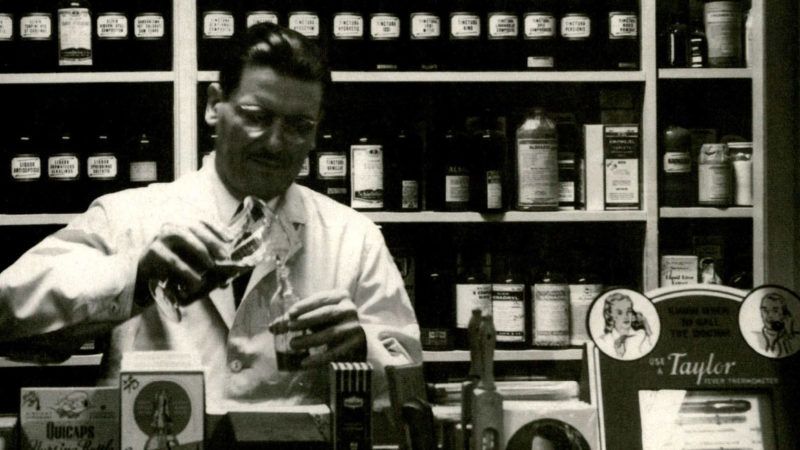From the Archives: August/September 2020
Excerpts from Reason's vaults

15 Years Ago
August/September 2005
"Statins are not the only class of safe drugs still under lock and key. Medical information is available to more people than ever before, and Americans are buying more drugs and making more-sophisticated choices about their health. Yet access to everything from insulin to Viagra still requires a day off from work and a trip to the doctor's office. For Americans growing more knowledgeable about the specifics of self-care, the prescription regime presents a significant and sometimes insurmountable barrier."
Kerry Howley
"Locking Up Life-Saving Drugs"
"From a civil libertarian perspective, it's clear enough why the unequal treatment of gay parents is objectionable: The human desire for family isn't exclusive to heterosexuals, and attempts to prevent gays from raising families both stigmatize them and threaten to deprive them of an important component of a full life. But these barriers to adoption should also offend anyone concerned about family values—about ensuring that all children, especially those who have suffered in the past, find loving homes."
Julian Sanchez
"All Happy Families"
25 Years Ago
August/September 1995
"The law was the Americans with Disabilities Act, and it gives the feds veto rights over such issues as: whether a prospective employer can ask a would-be truck driver if he has epilepsy; how far grab bars must be from the back walls of toilet stalls; what surfaces are permitted for subway platforms; how restaurant seating must be arranged; and dozens of other aspects of running businesses and city governments. The law has created an entire industry around interpreting it and, as the old cliché goes, provided plenty of work for lawyers, if not for the handicapped."
Brian Doherty
"Unreasonable Accommodation"
"As government deadlines for zero-emission vehicles draw closer, the scientific research community is telling politicians to pull the plug on the only vaguely plausible form of such a contraption: the electric car. Recent studies…all conclude that given the state of battery technology, the limitations and expected costs of the vehicles, and the anticipated environmental benefits, electric cars have a long way to go before they're up to speed."
Nick Gillespie
"Electric Blues"
30 Years Ago
August/September 1990
"Americans like to think of themselves as the world's leading democrats, but, by the usual measures, we're none too pleased with our own democracy. Voter turnout is low and getting lower; around 40 percent is standard for a statewide primary. People intensely distrust the politicos who represent them. Given the chance—as on the California primary ballot—voters will support just about any 'ethics' initiative that promises to control the people's supposed representatives."
Virginia I. Postrel
"Democracy Blues"
"Today's intellectuals and reformers have little respect for the automobile—or for automobile culture. The car's very convenience seems an indulgence, a waste of resources and money. 'The Soviet Union's greatest contribution to world peace was the fact that it did not put a car in every Soviet citizen's garage,' says Ralph Nader."
Fred Smith
"Autonomy"
45 Years Ago
August/September 1975
"For most people, daily newspapers or television news programs are lifelong textbooks. In their own fashion, journalists are the world's teachers who present 'lessons' in the form of news stories. The picture that emerges from these lessons is not unlike what emerges from most high schools and colleges: disjointed stories with no apparent connections. What daily journalism offers is not, strictly speaking, news (important changes in the status quo that can be verified), but gossip. The changes that are reported are not really changes, or they are not really important, or they are too-soon shown to be unimportant. In short, the daily journalism textbook is a random sample of incomplete information. It lacks completeness because it is all flat surfaces, and no foreground, my word for the unknown, still-to-occur events that would shed some light on the real changes and true importance of today's events. It is this failing that helps to strangle the chance for a science of journalism."
Dennis Chase
"Foregrounding the News"


Show Comments (21)